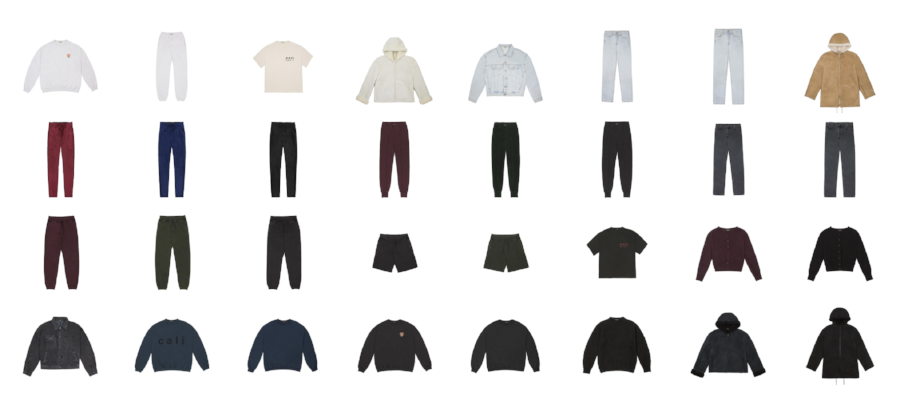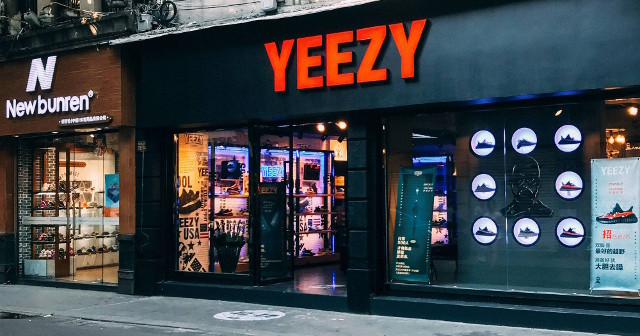
image: Yeezy Supply
Last year, Kanye West told Vogue that he wants to open 200 stores for his Yeezy line – a collaboration with adidas – within the next few years. The first of such outposts, he said, would likely open in California; Calabasas seems reasonable given that it is the central theme in West’s latest offerings. Well, the first Yeezy store has, in fact, opened its doors, not in California, but in Wenzhou, China.
The problem (aside from lack of convenient accessibility for Western-situated fans): Its existence has not been authorized by adidas or West.
As the China-centric site, Shaghaiist, recently stated, news of the store’s opening – which took place this past August – went viral online, thanks, in large part, to the fact that all of the products in the store are counterfeit. Interestingly, none of the goods – all sneakers – bear any adidas branding, just Yeezy.
And the store’s unnamed owner is seemingly unfazed by the potential legal ramifications of stealing another company’s branding. According to the Shaghaiist, the store owner said in August “that he wasn’t worried about the legality of his business because he had registered the ‘Yeezy’ trademark in China back in 2013, two years before Adidas even released its first Yeezy-branded sneaker.”
Believe it or not, his logic actually holds up – to an extent – due to the way the Chinese trademark system works. Unlike in the U.S., where a party gains rights in a trademark – such as a brand name or logo – by actually using it on products and selling them, China observes a completely different system. In China, there is no such “use” requirement. As such, a party can claim trademark rights – and thereby, prevent others from using a specific mark – as long as he is the first to register the name or logo with the national trademark office.

image: Shanghaiist
This is exactly what many native Chinese entities have done, including the owner of the Yeezy store. It has become something of an established industry in China for residents to identify Western brands that have not yet expanded East and beat the brand to filing for trademarks in China.
And this “trademark squatting” or “bad-faith filing” can be a lucrative business. By intentionally filing a trademark application for another party’s brand name, trademark squatters can then either hold the registration for ransom, so to speak, and then sell it to the brand (which is not necessarily an uncommon outcome given the unpredictability of how courts will rule in such cases and how long these cases could take). Or, the squatter can build his own business by using the famous mark in China, as the Yeezy store owner has done.
Such trademark battles are a common occurrence, just as Phillip Lim, who had to adopt a new logo for the Chinese market because his was taken. Dior, New Balance, Apple, Facebook, Cartier, and Costume National, among many other brands, have similarly experienced trademark-related issues in China.
Akris – the Swiss-based fashion brand that shows during Paris Fashion Week – recently spent 12 years fighting for the right to use its name in China after a native Chinese entity claimed rights in the name.
While China has – in recent years – adopted legislation to protect famous trademarks from squatting, the practice is still alive and well, as indicated by the Yeezy shop and the fake New Balance store next door.







